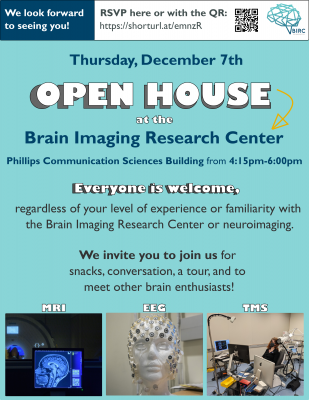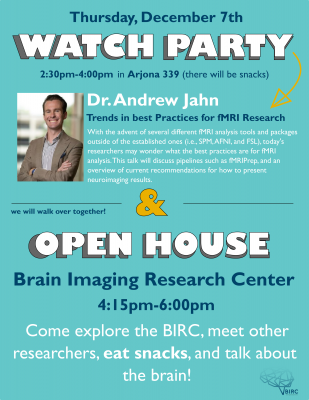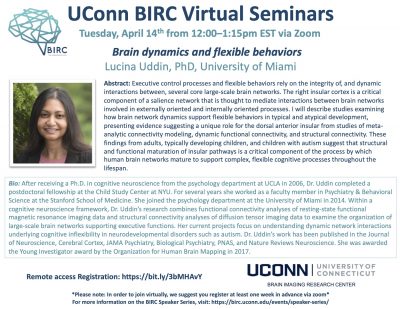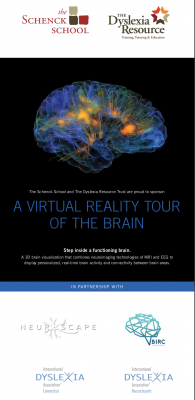Have you ever been curious about how brain pictures are taken, how we conduct neuroimaging research, or what kinds of equipment UConn has in our Brain Imaging Research Center? Now is the perfect opportunity to drop by our Open House and see what we have to offer!
The UConn Brain Imaging Research Center (BIRC) Open House will be Thursday, December 7th, 2023, 4:15-6:00pm and is open to everyone! We welcome students of all levels, faculty, staff, and interested community members to stop by and see our MRI, EEG, TMS, and other equipment as well as meet other interested community members. No background in neuroscience, psychology, etc. is required and staff members and students will be on hand to explain equipment, answer questions, and discuss their experiences working with these technologies. This event will take place in our Brain Imaging Research Center, in the Phillips Science Building on campus near E.O. Smith high school.
If you want even more brain-related fun, join us for the BIRC speaker series talk watch party. We will gather in Arjona 339 at 2:30 to watch Dr. Andy Jahn, author of Andy’s Brain Blog, speak to us about MRI methods.
RSVP here so that we have plenty of cookies and cocoa at the Open House! See you there (and don’t forget to bring a few friends along)!



